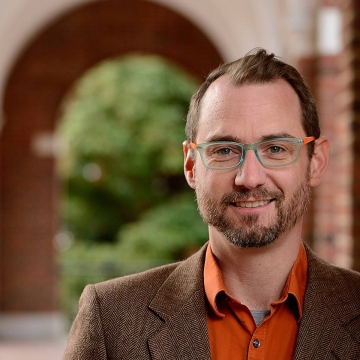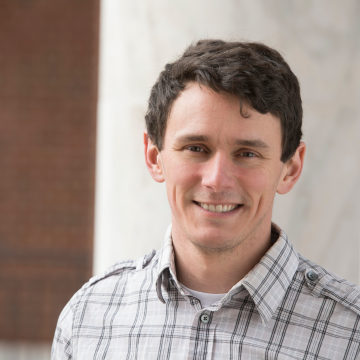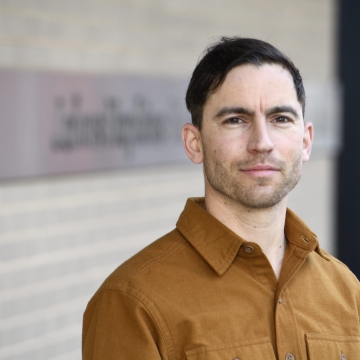Doctor of Philosophy (PhD) in Environmental Health
Offered by: Department of Environmental Health and Engineering
Onsite | Full-Time | 5 years
About the PhD in Environmental Health Program
The Doctor of Philosophy (PhD) degree program is a full-time degree program that offers a unique interdisciplinary learning experience where the course of study is individually tailored based on the student’s interest in understanding and finding solutions to pressing problems in environmental health and engineering.
The goal of PhD training in EHE is to prepare graduates to engage in scholarship and professional practice that creates new knowledge, use research to transform practice and improve the health of the environment and the public, and effectively communicate research findings to the public. The program requires didactic coursework followed by an average of four to five years of research towards a doctoral dissertation (also referred to as a thesis on official forms and committees).
Training is offered through a core curriculum that is required of all PhD students in the Department with the addition of track/program-specific requirements and focused courses in specialized areas.
Students are expected to tailor their curricula, working with their advisers to create a comprehensive plan of study and research. PhD thesis must be based on original research, worthy of publication, and approved by the Department and a committee of thesis (dissertation) readers. PhD students must also be engaged in primary data collection as a component of their dissertation research or embedded in other research during their training here.
Our programs are offered in the Whiting School of Engineering, on the Homewood campus (WSE) and the Bloomberg School of Public Health (BSPH) East Baltimore campus. Students in all of our programs have the unique opportunity to take classes on both the Homewood and East Baltimore campuses in order to complete their degree requirements.
Students in the PhD in Environmental Health program select from one of four tracks:
PhD in Environmental Health Program Highlights
Fully Funded
The minimum guaranteed 2025-2026 academic year stipend is $50,000, with a 4% increase the following year. Tuition, fees, and medical benefits are provided.
Multidisciplinary
Opportunities to work across departments in the Schools of Public Health, Engineering, and more
Write and Publish
Help with academic writing and grant proposals embedded into coursework, with opportunities to learn from published faculty and peers
Teaching Training
Teaching assistantships, training, and support for learning to teach, and opportunities for paid TA positions as well
What Can You Do With a Graduate Degree In Environmental Health?
Visit the Graduate Employment Outcomes Dashboard to learn about Bloomberg School graduates' employment status, sector, and salaries.
Sample Careers
- Assistant Professor
- Senior Consultant
- Data Scientist
- Environmental Toxicologist
- Epidemiologist
- Postdoctoral Fellow
Curriculum for the PhD in Environmental Health
Browse an overview of the requirements for this PhD program in the JHU Academic Catalogue.
Admissions Requirements
For the general admissions requirements see our How to Apply page.
Standardized Test Scores
Standardized test scores are not required and not reviewed for this program. If you have taken a standardized test such as the GRE, GMAT, or MCAT and want to submit your scores, please note that they will not be used as a metric during the application review. Applications will be reviewed holistically based on all required application components.
Vivien Thomas PhD Scholars
The Vivien Thomas Scholars Initiative (VTSI) is an endowed fellowship program at Johns Hopkins for PhD students in STEM fields. It provides full tuition, stipend, and benefits while also providing targeted mentoring, networking, community, and professional development opportunities. Students who have attended a historically Black college and university (HBCU) or other minority serving institution (MSI) for undergraduate study are eligible to apply. To be considered for the VTSI, you will need to submit a SOPHAS application, VTSI supplementary materials, and all supporting documents (letters, transcripts, and test scores) by December 1, 2024. VTSI applicants are eligible for an application fee waiver, but the fee waiver must be requested by November 15, 2024 and prior to submission of the SOPHAS application.

Faculty Advisers
The following faculty may be willing to advise PhD students. If you identify a faculty member that you want to work with who is not on this list, we encourage you to ask them about their availability.

Peter studies the chemical composition of gas particles in the air to improve our understanding of climate, air quality, and health impacts of pollutants.

Paul is a Bloomberg Distinguished Professor with joint appointments in the Department of Environmental Health and Engineering and the Carey Business School. He is known for his research on behavioral economics and the design and estimation of impacts of environmental programs.

Ciaran, an associate professor of landscape hydrology and Russell Croft Faculty Scholar, studies how the structure of landscapes controls the movement of water from rainfall to streams, and how that structure evolves over time.

Thomas Hartung, MD, PhD, steers the revolution in toxicology to move away from 50+ year-old animal tests to organoid cultures and the use of artificial intelligence.

Scot Miller combines satellite data and statistics to understand greenhouse gas emissions across the globe.

Roni Neff, PhD '06, ScM, researches ways to cut food waste and address climate change through more resilient, equitable, and healthy food systems.

Carsten's research focuses on the occurrence and fate of organic contaminants in the urban water cycle and their impact on environmental and human health.

Tuition and Funding
Per the Collective Bargaining Agreement (CBA) with the JHU PhD Union, the minimum guaranteed 2025-2026 academic year stipend is $50,000 for all PhD students with a 4% increase the following year. Tuition, fees, and medical benefits are provided, including health insurance premiums for PhD student’s children and spouses of international students, depending on visa type. The minimum stipend and tuition coverage is guaranteed for at least the first four years of a BSPH PhD program; specific amounts and the number of years supported, as well as work expectations related to that stipend will vary across departments and funding source. Please refer to the CBA to review specific benefits, compensation, and other terms.
Need-Based Relocation Grants
Students who are admitted to PhD programs at JHU starting in Fall 2023 or beyond can apply to receive a need-based grant to offset the costs of relocating to be able to attend JHU. These grants provide funding to a portion of incoming students who, without this money, may otherwise not be able to afford to relocate to JHU for their PhD program. This is not a merit-based grant. Applications will be evaluated solely based on financial need. View more information about the need-based relocation grants for PhD students.
